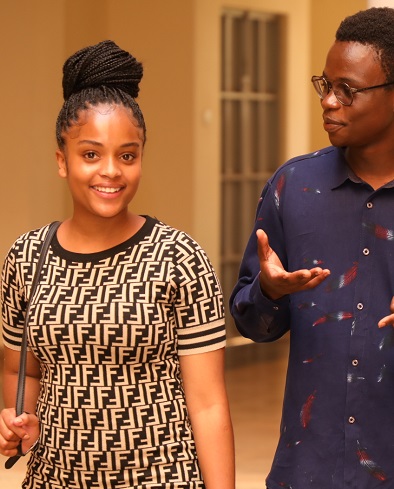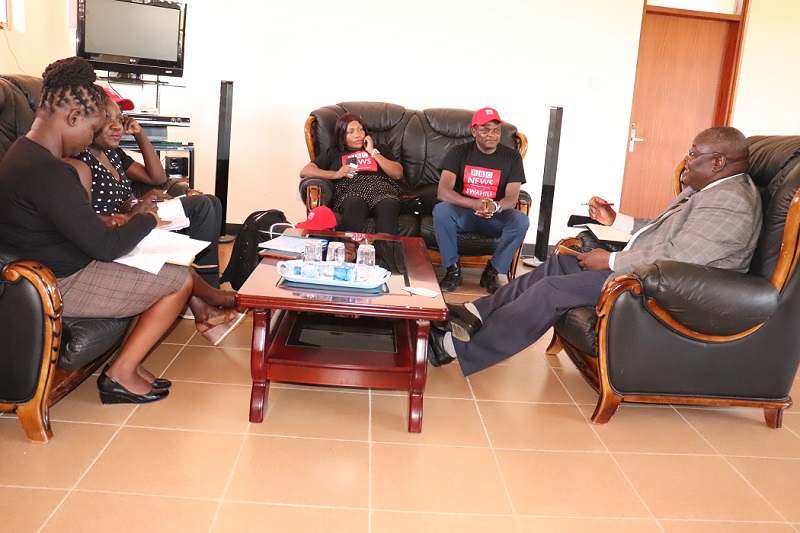They looked into issues affecting people from the Western part of Kenya, among them; Sugarcane farming, infertility among women and the plight of a university student. MMUST students participated in programming, and featured on the amka na BBC on Wednesday 29th May 2019 where they discussed the plight of a university student with preference to a girl-child, who has been depicted as the victim of murder by their depressed male counterparts. On Friday 31st May 2019 the students featured on Dira ya dunia where the question of infertility was tackled. The Programme was aired live from the university communication and PR offices, ABA 501 from 6:30 -7:00 pm.
Speaking during a courtesy call in his office, the Ag. Vice Chancellor Prof. Joseph Bosire noted with concern that there is need for Kenyan universities to rethink the lives of their students. He reiterated that the idea of assuming that once students enter university they become grown-up with liberty to do what they want should be changed. Majority of these students are still young and right from high school. Some of them have attended purely boy’s or girl’s schools. They have never had the freedom to freely visit and stay with their colleagues of different sex as much as they may wish. Having come from background of strict rules and regulations, many may end up getting pregnant or even infected with diseases.
“Imagine a situation where a female student, who has been staying in the university hostels gets pregnant. The student will be forced to move out of the hostels and rent a house outside the university. She needs time to take care of her newborn baby, she has assignments which the lecturer would like submitted on time or else marks will be deducted, parents at home are still bitter about her getting pregnant before completing studies, and worse of all is that the father of the newborn is at large. What is the next option for this student?” posed Prof. Bosire. He went ahead to call upon key stakeholders in higher education to think about how they can continue monitoring university students’ life after high school, as a way of mitigating murder and suicide cases witnessed in our universities today.
This comes in the wake of the recent killings and suicide cases reported among university students. The students talked of many things as factors contributing to the alarming increase in murder and suicide cases among university students. Key among them was over dependence on social media when in distress. Students no longer value sharing their problems with either their colleagues or parents. On the other hand, parents are no longer carrying out supervisory roles on their children after joining campus. This has led to increased cases of depression among students who find themselves in situations that need someone to offer guidance, only to realize that there is no one. They choose social media where they find it even worse, since they are misled most of the time.
The fact remains that the number of men who commit suicide is three time higher than that of women. While many women are found to be victims of murder, their male counterparts are silently in depression. Most men are prisoners of their own afflictions which they cannot share. By keeping silent they reach a point where taking away their own life is the only solution to their afflictions. Suicide today is among the top 20 causes of death, and the most affected are the people between the age of 15 and 29 years. As a nation, we need to value and cultivate the culture of sharing. Spare time to talk to someone. Let us be our brothers’ keepers. Let us build a home and a sense of belonging amongst ourselves. Let us build strong university communities. Nothing is worth taking away a life. No explanation can ever justify losing a life.
By Shiundu Wilberforce (This email address is being protected from spambots. You need JavaScript enabled to view it.)and Dr. Lydia Anyonje (This email address is being protected from spambots. You need JavaScript enabled to view it.)





